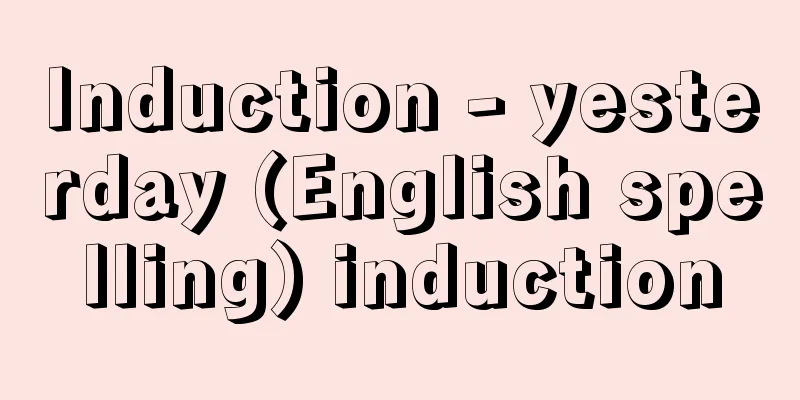Triple Intervention

|
Russia, Germany, and France interfered in Japan's division of the Liaodong Peninsula. In the Treaty of Shimonoseki (signed on April 17, 1895), the peace treaty of the First Sino-Japanese War, Japan ceded the Liaodong Peninsula, which occupies an extremely strategic location in the center of China, along with Taiwan and the Penghu Islands, to China. In response, on April 23, six days after the signing and three days after ratification, envoys from Russia, Germany, and France visited the Ministry of Foreign Affairs and recommended that Japan renounce its claim to the Liaodong Peninsula, because Japan's possession of the peninsula would endanger the Qing Dynasty's capital, make Korea's independence a mere formality, and become an obstacle to peace in the Far East. The Japanese government was not completely surprised by the interference from the great powers, including Russia, but when it actually happened, they struggled to come up with a countermeasure. On the following day, the 24th, an Imperial Conference was hastily held in Hiroshima, where the Imperial Headquarters was located, and Prime Minister Ito Hirobumi proposed three options: (1) reject the recommendation and fight, (2) hold an international conference to resolve the Liaodong Peninsula issue there, or (3) accept the recommendation and return it to China as a favor, and the second option was ultimately adopted. However, Foreign Minister Mutsu Munemitsu, who was recuperating from an illness in Maiko (Kobe City), opposed the idea of holding an international conference, citing the risk of inviting further interference, and proposed that the Treaty of Shimonoseki be ratified to maintain Japan's dignity and honor, and that the return of the Liaodong Peninsula be considered separately. Ito agreed with this option, and it was approved by the Emperor. Meanwhile, Mutsu delayed giving its response to the three countries, while proposing solutions such as having Britain, America, Italy, and others check Russia and the other three countries, abandoning the Liaodong Peninsula except for Jinzhou Office, and making the open ports free ports, but Britain, which it relied on the most, did not move, and having run out of options, the Japanese government decided to abandon the Liaodong Peninsula on May 4th, notifying the three countries the following day, and on the 10th the Emperor announced this to the people by imperial decree. Japan and China signed the Liaodong Peninsula Restitution Treaty on November 8th of the same year, and Japan received 30 million taels (45 million yen in Japanese currency) in compensation for the restitution. The division of the Liaodong Peninsula marked the beginning of the great powers' expansion of China, which had previously been limited to the peripheral areas, to the center of the country, and the Triple Intervention marked the first step in the open struggle between the great powers over the division of China. After the Triple Intervention, there was a growing movement in Japan to prepare for a war against Russia, with calls for "sleeping on firewood and tasting gall." [Akira Nakatsuka] "Kenkenroku" by Mutsu Munemitsu (Iwanami Bunko)" ▽ "Japanese History 26: Sino-Japanese and Russo-Japanese Wars" by Uno Shunichi (1976, Shogakukan) [References] | |Source: Shogakukan Encyclopedia Nipponica About Encyclopedia Nipponica Information | Legend |
|
日本の遼東(りょうとう/リヤオトン)半島分割に反対したロシア、ドイツ、フランス3国の干渉。日清(にっしん)戦争の講和条約である下関(しものせき)条約(1895年4月17日調印)で、日本は台湾、澎湖(ほうこ/ポンフー)列島とともに、中国の中央部に絶大な戦略的位置を占める遼東半島を中国に割譲させた。これに対し、調印後6日目、批准後3日目の4月23日、ロシア、ドイツ、フランス3国公使が外務省を訪れ、遼東半島を日本が所有することは、清国の首府を危うくし、朝鮮の独立を有名無実とし、極東の平和に障害となるから、その領有を放棄すべしと勧告してきた。ロシアをはじめとする列強の干渉を、日本政府は予期しないわけではなかったが、現実にそれが起こって対策に苦慮した。翌24日、大本営の置かれていた広島で急ぎ御前会議が開かれ、伊藤博文(ひろぶみ)総理大臣は、(1)勧告を拒絶して戦うか、(2)列国会議を開いて遼東半島問題をその会議で処理するか、(3)勧告を受け入れて恩恵的に清国に還付するか、の3案を提案、結局第二案を採択した。しかし舞子(神戸市)で病気療養中の陸奥宗光(むつむねみつ)外務大臣は、列国会議は新たな干渉を誘発する危険もあるとして反対、下関条約はあくまで批准交換し、日本の面目と威厳を保ち、それとは別に遼東半島の還付を考えるべきことを提案、伊藤もこれに賛成、天皇の裁可を得た。一方、陸奥は3国への回答を引き延ばすかたわら、イギリス、アメリカ、イタリアなどをしてロシアら3国を牽制(けんせい)させる方策、金州庁(きんしゅうちょう)を除く遼東半島の放棄、開港場の自由港化など、打開策を打診したが、もっとも頼りにしたイギリスが動かず、万策つきて、5月4日、日本政府は遼東半島の放棄を決定、翌日3国に通告、10日には天皇が詔勅でその旨を国民に告げた。日清両国は同年11月8日、遼東半島還付条約に調印、日本は還付の代償として庫平銀(こへいぎん)3000万両(テール)(邦貨4500万円)を得た。遼東半島分割は、それまで中国の周辺部分の侵略にとどまっていた列強の中国分割を一気に中国の中央部まで広げる先鞭(せんべん)をつけたもので、三国干渉は中国分割をめぐる列強の公然たる争いの第一歩となった。三国干渉後、日本では「臥薪嘗胆(がしんしょうたん)」の声のもと、対ロシア戦争に備える動きが強まった。 [中塚 明] 『陸奥宗光著『蹇蹇録』(岩波文庫)』▽『宇野俊一著『日本の歴史26 日清・日露』(1976・小学館)』 [参照項目] | |出典 小学館 日本大百科全書(ニッポニカ)日本大百科全書(ニッポニカ)について 情報 | 凡例 |
<<: Intermediary trade - Sankokukanboueki (English spelling)
>>: Theatre of Cruelty (zankokuengeki)
Recommend
Flame Speed
...It varies depending on the type and concentrat...
Sakeware - Shuki
A general term for containers used to pour and dr...
Galaxaura falcata (English spelling) Galaxaurafalcata
…[Mitsuo Chihara]. . . *Some of the terminology t...
Forced collection - forced collection
Under administrative law, when a citizen fails to...
Perjury - gishōzai
It is a crime for a witness who has been sworn in...
société bourgeoise (English spelling) société bourgeoise
...In Japanese history and social science, this t...
Melk Abbey - Melk Abbey
Melk is a town in the western part of the Wachau V...
Onron
…Faced with the downfall of the Ming Dynasty, the...
Aqua regia (English spelling)
A common name for a mixture of concentrated nitri...
Miyanoshita [Hot Spring] - Miyanoshita
A hot spring in Hakone-machi, Kanagawa Prefecture....
Principle of public trust
This principle protects those who trust the appea...
Fire ship
〘Noun〙① A ship used by navies in the Sengoku perio...
cetiya
…In ancient India, the Sanskrit word for an objec...
Earth (myth) - Earth
...Balder (who shoots mistletoe at Baldr), Baal (...
Zimmermann, JB
…a late Baroque (Rococo) architect from South Ger...









